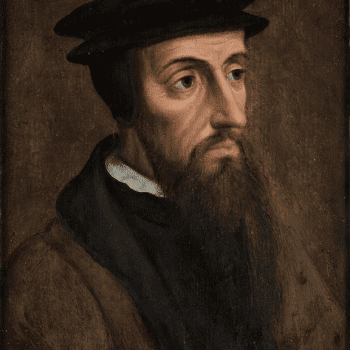In the introduction to the 1859 volume of Spurgeon’s sermons we find the following provocative few paragraphs:
In the history of the Church, with but few exceptions, you could not find a revival at all that was not produced by the orthodox faith. What was that great work which was done by Augustine, when the Church suddenly woke up from the pestiferous and deadly sleep into which Pelagian doctrine had cast it? What was the Reformation itself but the awaking up of men’s minds to those old truths?
However, far modern Lutherans may have turned aside from their ancient doctrines . . . yet, at any rate, Luther and Calvin had no dispute about predestination. Their views were identical, and Luther’s Bondage of the Will is as strong a book upon the free grace of God as Calvin himself could have written . . . . Need I mention to you better names than Huss, Jerome of Prague, Ferel, John Knox, Wickliffe, Wishart, and Bradford?
Need I do more than say that these held the same views, and that in their day anything like an Arminian revival was utterly unheard of and undreamed of? And then, to come to more modern times, there is the great exception, that wondrous revival under Mr. Wesley, in which the Wesleyan Methodists had so large a share; but permit me to say, that the strength of the doctrine of Wesleyan Methodism lay in its Calvinism.
The great body of the Methodists disclaimed Pelagianism, in whole and in part. They contended for man’s entire depravity, the necessity for the direct agency of the Holy Spirit, and that the first step in the change proceeds not from the sinner, but from God. They denied at that time that they were Pelagians. Does not the Methodist hold, as firmly as ever we do, that man is saved by the operation of the Holy Ghost, and the Holy Ghost only? And are not many of Wesley’s sermons full of that great truth, that the Holy Ghost is necessary to regeneration?
. . . And then, let me say, if you turn to the continent of America, how gross the falsehood that Calvinistic doctrine is unfavorable to revivals. Look at that wondrous shaking under Jonathan Edwards, and others which we might quote. Or turn to Scotland—what shall we say of M’Cheyne? What shall we say of those renowned Calvinists, Dr. Chalmers, Wardlaw, and before them, Livingstone, Haldane, Erskine, and the like?
What shall we say of the men of their school, but that, while they held and preached unflinchingly the great truths which we would propound today, yet God owned their word, and multitudes were saved. And if it were not perhaps too much like boasting of one’s own work under God, I might say, personally I have never found the preaching of these doctrines lull this church to sleep, but ever while they have loved to maintain these truths, they have agonized for the souls of men, and the 1,600 or more whom I have myself baptized, upon profession of their faith, are living testimonies that these old truths in Publishers “Introduction,”modern times have not lost their power to promote a revival of religion.
Publisher’s “Introduction”, Charles Haddon Spurgeon, Revival Year Sermons: Preached at the Surrey Gardens Music Hall during 1859 (Edinburgh: The Banner of Truth Trust). Cited at The Resurgence.














